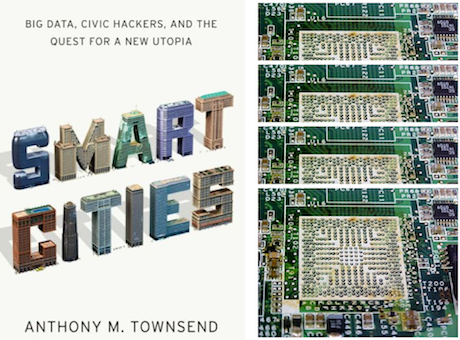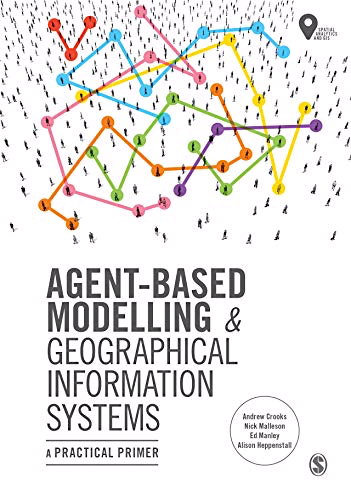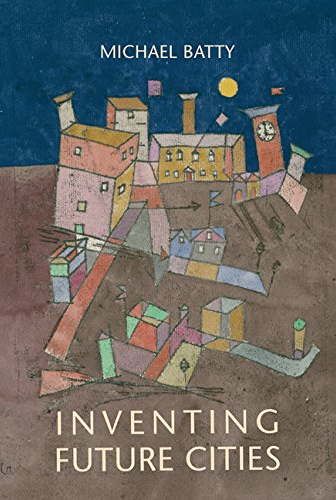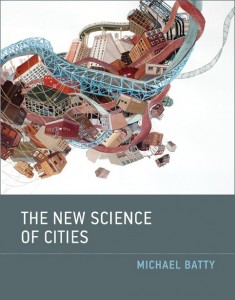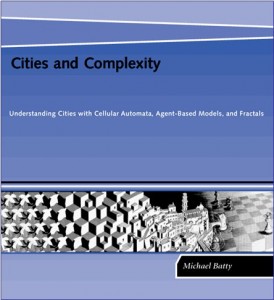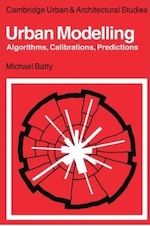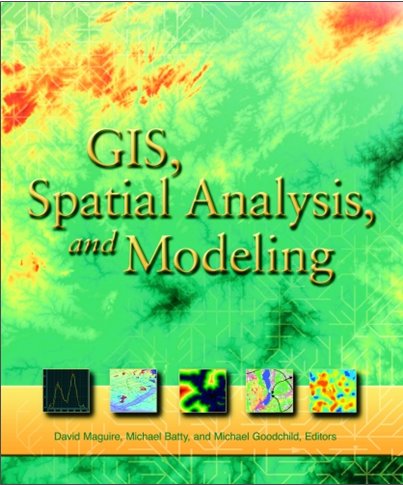This is the first book on ‘smart cities’. It is a deep and thoughtful critique, as well as an absorbing and personal account. Anthony Townsend tells us how computers and their software and services are being embedded into cities, how we are changing cities using computers and how they are changing us, how big data is being produced that provides us with the ‘potential’ for understanding and planning the city more effectively than has ever been possible hitherto. But this is a ‘potential’ that is far from being realised and the path to this better future is strewn with obstacles, with respect to the limits of capitalism, governance, and ignorance of past attempts to do the same in cities which have come to little.
This is set against a background that suggests that any science of cities is hard and progress towards this is slow. Townsend weaves this history into his telling of the smart cities movement in such a way that he cautions against the idea of big science, even big data in generating this future. In fact, he argues as many of us in complexity theory do, that cities are built from the bottom up, they emerge organically as the products of millions of decision, decisions that are now becoming ‘smart’ in that they are being aided by contemporary ICT at every level. The smart cities of the future will not be built by the IBMs and Cisco’s of this world, he implies, but by citizens adopting ICT and acting from the bottom up. He invokes the spirit of Patrick Geddes in this quest to make cities smarter, something that resonates remarkably with our (or at least my) views here in CASA and UCL of the way we should plan the future of our cities.
Anthony is here next week to launch his book and talk to people in the Future Cities Catapult. He is talking twice at UCL, on Tuesday 5th November, first in CASA at 11am in the morning and then in the afternoon in the Intel Centre for Connected Cities at 16-18 Gordon Square, 305pm. He talks at the Cities Catapult on Wednesday 6th November. Details available by clicking on the various links and for those on 5th November I will put these up this next week when we get rooms etc.
In fact the book is published in the US but not until October 29th here. There are details on Anthony’s blog here.

